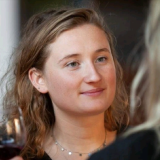Health Humanities
Combine insights from cultural studies, philosophy, history, and anthropology to approach contemporary issues related to mental and physical health. Study how perceptions of illness and health are historically and culturally situated. Reflect on current and technological developments within the healthcare domain. This is a track of the MA Arts and Culture Studies.
DISCLAIMER: Program Discontinuation Notice per 2025
September 2024 is the last intake for this program, after which the Health Humanities Master's track will no longer be offered. Importantly, this decision will not affect students who are currently enrolled in the Health Humanities program. Note that pre-Master's students who have enrolled in the Health Humanities program in September of the academic year 2023-2024, will still have the opportunity to pursue the Health Humanities program. In order to obtain a Health Humanities diploma, the program must be completed in the academic year 2024-2025.
Check out our Master's programs and find out which program suits you best.
(of all students who started in 2023)
Alumni of Culture Studies (all tracks), National Alumni Survey, 2021 | n = 11
Alumni report, 2021 | n=502 (Culture Studies, all tracks)
Program and courses
Learn to critically analyze opinions, claims, beliefs and practices regarding health and healthcare. Gain an understanding of the historical and cultural context in which these have developed. Draw on insights and theories from various humanities disciplines, including cultural studies, gender studies, history, anthropology, philosophy, (online) media studies and technology studies.
Address questions such as:
- How does knowledge production take place in relation to disease and health? For example, how does evidence-based medicine work, and why is it such an important part of current biomedical science? What role do numbers, images, and narratives play in the production of knowledge about health?
- What political beliefs underlie policy choices within healthcare, and are these choices inclusive and just? For example, which bodies are included in public space and which are not? What role does gender play in the formation of medical knowledge and healthcare provision?
- How is our thinking about normal and abnormal shaped by socio-cultural norms? For instance, what values and assumptions underlie the BMI index? Why is melancholy considered a sign of depression in our culture and not a normal part of life?
- What are the implications of the many new technologies on our thinking and behavior in relation to disease and health? For example, do you feel healthier by monitoring your health with wearables and apps? And if AI is used for diagnosis, who is responsible if something goes wrong: the developer or the healthcare provider?
Connect theory with practice through an internship (optional) and by attending guest lectures from professionals.
Turn academic content into publications that are accessible to a wider public through Diggit Magazine - both a learning instrument and an online news platform focusing on arts, digital culture, and globalization.
This is a track of MA Culture Studies. You specialize by following one of its tracks.
Typical courses are:
- Cultural Practices of Knowledge Production in Health and Medicine
- Digital Futures
- The Normal and the Abnormal
- Diversity and Equity in Health and Medicine
-

Heleen van der Zee
Alumna | Trainee consultant | Q-Consult Zorg"In the master's program Health Humanities, I had the opportunity to explore different issues within healthcare. The broad approach, focusing on both patient experience and "-perspective, as well as policy and inclusion, allows me to think from various perspectives in my current job."
-

Tessa Visser
Alumna | Junior researcher Diversity & Inclusion | Mulier Instituut"This master has taught me to think critically, specifically about the current standards, measuring instruments and norms concerning health and healthcare. It has also broadened my knowledge on inclusion and diversity in this domain."
Career prospects
After your studies, you will be able to critically reflect on practices and theories in contemporary healthcare from a variety of perspectives. This enables you to make a valuable contribution to policy discussions, the public debate and the development of innovative approaches, programs and tools.
Some of our graduates' jobs:
- Staff consultant at University Medical Center (UMC) Maastricht
- PhD researcher at the Developmental Psychology Department of Tilburg University
- Employee purchasing support at the Dutch health insurance company CZ Groep
- Junior researcher Diversity & Inclusion at the Mulier Institute
- Customer Success Manager & Coach at GoodHabitz
Alumni facts
- 81% of our alumni find a job within 6 months
- Average time between graduation and first paid job is 3 months
Source: Alumni of Culture Studies (all tracks), National Alumni Survey, 2021 | n = 11

Application and admission
This program starts:
End of August
Best preparatory programs:
A Bachelor's degree in the field of:
|
|
- The academic background of the students in our Master's program varies a lot. Students with a Bachelor's degree in a different subject area are also most welcome to apply.
Interested in the Master's program?

More information on this Master's program
Create your own e-brochure with information on program content, admission requirements, career prospects, and student life in Tilburg. Throughout the year you can take part in various types of events: on-campus, abroad or online.
-
13:30 - 15:45
Campus Experience
Are you curious about life as a student at Tilburg University, or not sure which university you want to attend? Join our Campus Experience on Wednesday
May 8! Discover our compact and green campus with one of our students and find out if Tilburg University is your future home. -
To be announced
Master's Open day
Are you interested in doing a Master's program? Do you want to specialize or are you looking for a Master that broadens your possibilities? Join us at the Master's Open day on November 16 to find out which (pre-)Master's program suits you best. Learn all about our (pre-)Master’s programs and tracks, and ask teachers, students, and education coordinators your questions.
Interested in MSc Health Humanities?
Check your eligibility and the deadlines for application



